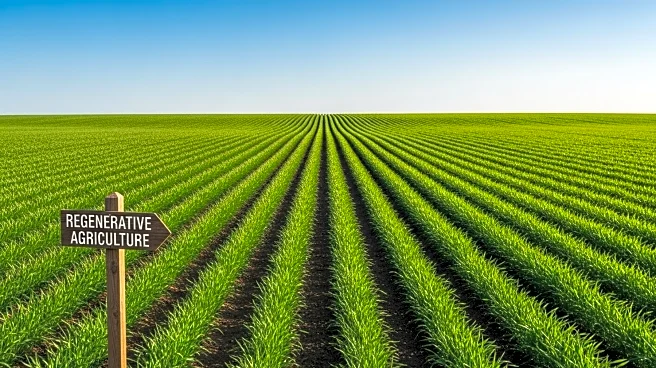What is the story about?
What's Happening?
Brazilian farmers are experiencing significant yield improvements through regenerative agriculture practices such as crop rotation, direct planting, and crop-livestock-forestry integration. These methods have led to healthier soils and more resilient production systems, with soybean yields increasing by nearly 20% over the past decade. Other crops like coffee and cotton have also seen productivity gains. These practices have allowed Brazil to enhance its agricultural output without expanding into new land, maintaining its position as a leading food producer while preserving the environment.
Why It's Important?
The adoption of regenerative agriculture in Brazil demonstrates the potential for sustainable farming practices to increase productivity and environmental conservation. By improving soil health and reducing the need for chemical inputs, these methods contribute to long-term agricultural sustainability. Brazil's success in this area could serve as a model for other countries seeking to balance food production with environmental preservation. The economic benefits of increased yields and reduced input costs could also enhance the livelihoods of farmers and support rural development.
What's Next?
Brazil is likely to continue promoting regenerative agriculture, potentially expanding these practices to more regions and crops. The government and agricultural organizations may invest in research and development to further optimize these methods. As global demand for sustainable food production grows, Brazil's leadership in regenerative agriculture could strengthen its position in international markets.















